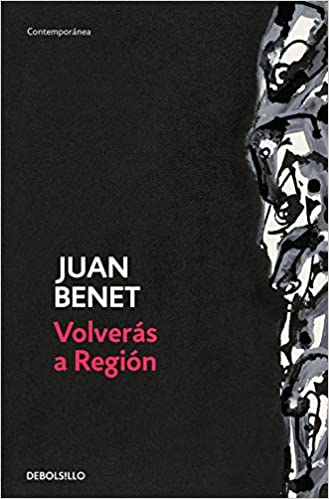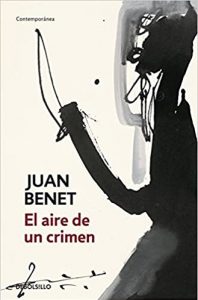I bring to this space one of the most atypical writers of the Spanish narrative: John Benet. An author capable of combining his work as a civil engineer with this sort of literary vocation that he masterfully developed in substance and especially in forms, as only a genius can do.
Current prestigious authors such as Javier Marías recognize in Juan Benet one of the clearest literary references in Spanish literature of the mid-XNUMXth century. A sophisticated writer, focused on brilliant formalism to bring greater significance to the background of the plot.
The most curious thing of all is that, despite such disparate pluriactivity, his manifest dedication to formalism and exquisite trope must always have entailed a greater demand and neatness when sitting down to write. But at the end of the day, what it is about is to be consistent and convince yourself of a job well done. In the case of Juan Benet, whether it was a hydraulic dam or a novel ...
In the essay he also lavished on books on the study of the novel itself or on Spanish politics. As far as the novel is strictly concerned, reading Juan Benet even today continues to be an intellectual challenge in which the language transcends the political and social circumstances of his time.
Completely abstracting himself from realistic tendencies prior to him, Juan Benet recovers the splendor of language so that it transmits ideas, emotions and sensations. His books are magical compositions of words that accompany and also adorn any approach in which the strict and generally human becomes background and scene, language and metaphor.
Top 3 recommended novels by Juan Benet
You will return to region
Somehow Juan Benet was a markedly free writer. He earned his bread with something else and writing was a pleasure, a communicative intention, a desire to find a new paradigm beyond the realism that filled the bookstores. Only in this way could this author's first novel be born.
In the plot we find Daniel Sebastián, a doctor who tries unsuccessfully to recover a deranged boy, or at least to soften his outbursts of madness. And meanwhile a woman who leads the doctor to a deep and labyrinthine conversation while filled with a brilliant lyricism of an impossible Dante who had slipped into history.
The most fascinating thing of all is that the recurring theme, the basic support of the work is war, the ideas that the two characters offer about the armed conflict that ravaged the Region at the time.
A very brilliant narrative proposal, with some superfluous cartographic display that betrays the engineer author but that in turn maps the soul of the doctor, of the woman with a deep and captivating voice and the tormented soul of the young man irretrievable for reality, as a strange metaphor of what remains after a war.
Rusty spears
Region once again becomes the space of the novel. And more and more the intention to cover everything in that generic name is guessed. Why "Region"? Beyond the specific drifts of the plot, the idea encompasses the generality.
From the clear reference to the Civil War to the consideration of the conflict anywhere in the world, where, ultimately, the suffering of the same human soul is discovered.
An extensive work (originally composed of three volumes), where Juan Benet introduces us to fictional characters who live a perfectly recognizable war scene and yet also end up encompassing existentialist aspects such as chance, predestination, concepts that in the extreme scenario of a war seem subject to the whims of a death that roams at ease amid the general madness.
The air of a crime
Region, the everlasting scene, perhaps a reflection of the glorious Macondo. Probably the most dynamic novel by an author who looked out over the thriving noir genre embodied in Spain by Vazquez Montalban, among others. And the truth is that the mixture was a magnificent fusion.
The usually melancholic Region is shaken by the appearance of a corpse on which a plot will develop in which the inhabitants of the Region demonstrate that their silence is only a fatalistic assumption of destiny, a concession to the darkness of their spirit invaded by the defeat and the painful memories of the past.
What may happen in the Region about the unfortunate corpse, plus the appearance of two deserter soldiers awaken restlessness and violence in a small cosmos longing for emptiness, darkness, and recollection.
At times we think of the inhabitants of the Region as withdrawn, incapacitated beings, until the alienating sensation can be understood as easily extrapolated to the time of Juan Benet and even to our own time.



